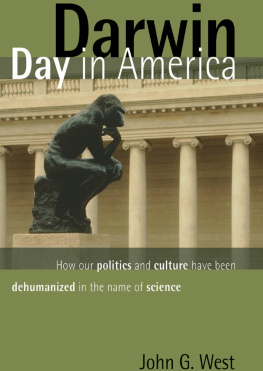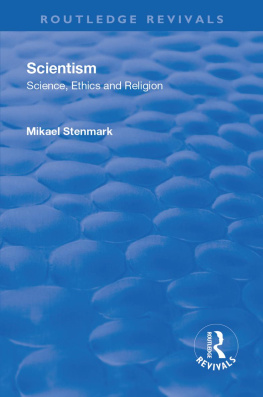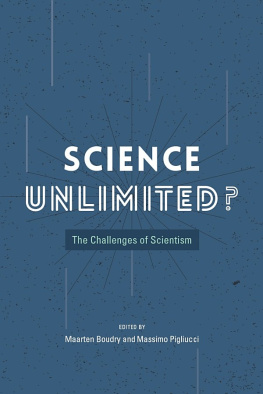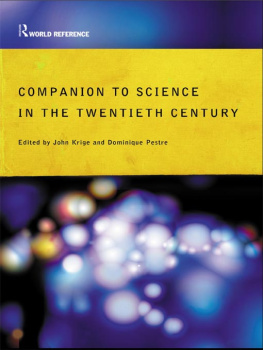Preface
At the dawn of the last century, leading scientists and politicians giddily predicted that modern scienceespecially Darwinian biologywould supply solutions to all the intractable problems of American society, from crime to poverty to sexual maladjustment.
Instead, politics and culture were dehumanized as a new generation of scientific experts began treating human beings as little more than animals or machines:
In criminal justice, these experts denied the existence of free will and proposed replacing punishment with invasive cures such as the lobotomy.
In welfare, they proposed eliminating the poor by sterilizing those deemed biologically unfit.
In business, they urged the selection of workers based on racist theories of human evolution and the development of advertising methods to more effectively manipulate consumer behavior.
In sex education, they advocated creating a new sexual morality based on normal mammalian behavior, without regard to long-standing ethical or religious imperatives.
This book explores the far-reaching consequences for society when scientists and politicians deny the fundamental differences between human beings and the rest of the natural world. It also exposes the disastrous results that ensue when experts claiming to speak for science turn out to be wrong. Finally, the book presents a plea for democratic accountability in an age of experts.
This book is not anti-science, although some dogmatic champions of current scientific theories may try to claim otherwise. Modern science has brought tremendous benefits to human life, ranging from wonder-working medicines to the personal computer on which I am writing this preface. But science is not God. It has not perfected human nature nor has it curbed the human abuse of power. Like every human enterprise, science is partial, corruptible, and prone to error, and it needs to be subject to the checks and balances of a free society and the moral law.
My interest in exploring the impact of modern science on public policy and culture was sparked long ago by my reading of C. S. Lewiss That Hideous Strength and The Abolition of Man. In the late 1990s, I embarked on a long-term research project to document in America the impacts of reductionist science on public policy and culture so perceptively identified by Lewis. This book is the result.
It has been a long journey. Along the way, I discovered that many of the things I thought I knew about the history of science and public policy were wrong, or at least misleading. When I started, for example, I assumed that Darwins theory of evolution and Social Darwinism were substantially distinct, and that Social Darwinism was a twisting of Darwins theory in a way that Darwin would not have approved. Then I read Charles Darwins Descent of Man and realized that my simplistic dichotomy between Darwin and Social Darwinism could not be maintained. The results of my investigation into Darwins own application of his theory to human beings and society can be found in chapter 2.
Similarly, I started out believing that Darwinism was championed by ruthless businessmen during the Gilded Age to justify the worst excesses of nineteenth-century capitalism. The nineteenth-century capitalist Darwinist served as a nice counterpoint to the socialists and progressives who also championed Darwin. However, there was a major problem with this widely held view. If you want to know what it is, please read chapter 6.
In the area of crime and punishment, I began with the background assumption that the use of science to diminish criminal responsibility was primarily used to justify the liberal view that criminals should not be punished for their crimes, because crime is tantamount to a disease. Little did I realize that the same scientific debunking of personal responsibility that justified liberals leniency toward criminals also layed the groundwork for a more radical conservative approach to crime that sought to ensure that criminals would never re-offend. I explain the paradoxical impact of reductionist science on the criminal justice system in chapter 5.
I approach this book as a political scientist and a scholar, but I am also a participant in current debates over Darwinian evolution and intelligent design. As a result, chapters 10 and 11 draw on firsthand knowledge as well as academic research in exploring the controversies over the teaching of evolution in schools.
When I began research for this book in earnest in 1998,I did not realize it would be a marathon. Because the scope of the book encompasses so many disciplines and more than a century of public policy, researching each section was like starting a new book. I am indebted to Bruce Chapman, president of Discovery Institute, who encouraged me to begin the project; to Stephen Meyer, director of Discovery Institutes Center for Science and Culture, who made research funding from Discovery Institute a priority; and to Seattle Pacific University for allowing me to take a leave of absence during the 20034 academic year so I could complete an early draft of the manuscript. I am especially grateful to Jeremy Beer of ISI Books for his enthusiastic interest in publishing my manuscript.
I further wish to express my appreciation for a number of fine research assistants over the years. These include Matt and Lisa Cooper, who gathered stacks of primary sources for me during the summer of 1998. Others who provided significant research help include Greg Piper, Anna Sperling, Joshua Littlefield, Logan Gage, Marshall Sana, Marsha Michaelis, Cindy Lin, Benjamin Miller, and Joe Miceli. Additional thanks should go to Mike Perry, publisher of Inkling Books, who drew my attention to the controversy in Bottineau, North Dakota (discussed in chapter 7), through a letter he had located in the Margaret Sanger papers; the interlibrary loan office at Seattle Pacific University; the American Philosophical Society library in Philadelphia, which holds the papers of Charles Davenport, the Eugenics Record Office, and the American Eugenics Society; and the California Institute of Technology archives in Pasadena, which houses the records of the Human Betterment Foundation.
I also profited from the careful comments and suggestions I received from a number of reviewers of all or part of the manuscript, including Richard Weikart, professor of history at California State University, Stanislaus; Robert Clinton, professor of political science, Southern Illinois University at Carbondale; Edward Larson, Herman E. Talmadge Chair of Law and Richard B. Russell Professor of American History at the University of Georgia; Larry Arnhart, professor of political science at Northern Illinois University; Bruce Chapman and Jonathan Wells of Discovery Institute; Francis Beckwith, associate professor of philosophy at Baylor University; Reed Davis, professor of political science at Seattle Pacific University; Linda Jeffrey; Fred Foote; and my wife, Sonja West. Of course, the standard disclaimer applies: Any errors of fact or interpretation are my own fault.
Finally, I would like to thank those who helped during the preparation of the final manuscript: Anika Smith, whose expert care ensured the proper formatting of hundreds of endnotes; and Grant Hackett, who created the index.












